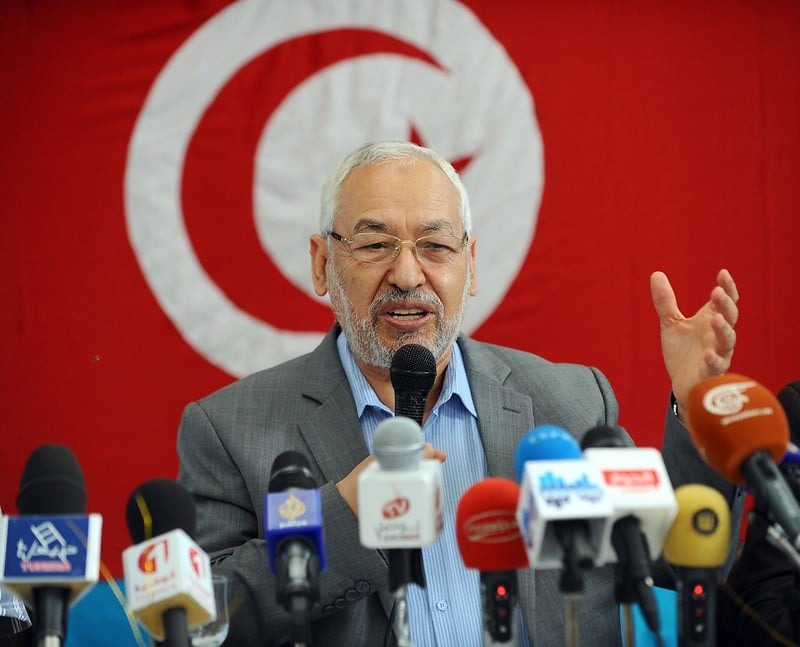Photo: Rached Ghannouchi, leader of the Ennahda Party - Flickr
On January 31st, Tunisian opposition leader Rached Ghannouci was sentenced to three years in prison. Ghannouci, who is 82, is the leader of Tunisia's largest opposition party, the Ennahda party. Ghannouci received this sentence due to accusations of Ennahda receiving illegal foreign contributions. The party rejects these allegations and stated that "Ennahda has never received foreign funding and Ennahda's only bank account is supervised by all judicial and financial institutions." The court gave the same punishment to Ghannouchi's son-in-law Rafik Abdessalem, a senior Ennahda official, and also fined Ennahda a sum of $1.1 million. The sentence comes on top of a 15-month jail term imposed on Ghannouchi by another court last year after he was found guilty of inciting hatred and supporting terrorism. President Kais Saied has repeatedly detained political opponents and is accused of suppressing democracy.
President Kais Saied
Kais Saied, a former law professor, was elected president of Tunisia in 2019. In 2021, Saied carried out a "self-coup" by freezing parliament and dissolving the government, ultimately giving himself more power. Human rights organisations claim that since taking power, Saied has undermined the independence of the judiciary and stepped up strict measures against political opponents and critics, with a remarkable escalation of arbitrary arrests and prosecutions. In 2023, more than twenty critics of the president, including former ministers and politicians, were arrested. President Kais Saied has been criticised for cracking down on the opposition. Saied claims these actions are necessary to ensure stability and fight terrorism.
Ennahda
Ennahda, a self-proclaimed Islamic democratic political party in Tunisia, was founded in 1981 as the Islamic Tendency Movement. Its founding was inspired by other Islamist organisations such as the Muslim Brotherhood. The party was banned when the North African country was under the rule of dictator Zine El Abidine Ben Ali, but was legalised after the revolution that overthrew Ben Ali in 2011. The so-called Jasmine Revolution, or Arab Spring, resulted in Tunisia's first free elections in 2011, which Ennahda won with 90 out of 217 seats.
Democracy under pressure?
Tunisia is often described as the only success story of the Arab Spring because it was the only country able to make the transition to democracy. Yet democratic reforms introduced after the Arab Spring were reversed by President Kais Saied. In 2022, a referendum was voted in which allowed Saied to draft a new constitution that minimised the powers of the judiciary and parliament. This vote was boycotted by several opposition parties who publicly condemned Saied's reversal of democratic progress. The parliamentary elections that followed later in 2022 were also boycotted by opposition parties. In addition to this boycott, many citizens refused to vote because of diminished confidence in politics, eventually leading to less than 9% of eligible voters participating in these elections. Opposition parties claim that Saied should resign because of this low turnout. Despite this, Saied still has many followers who believe that a strong leader is needed to tackle problems such as corruption.
In 2023, on the 12th anniversary of the start of the Arab Spring, thousands of demonstrators took to the streets to protest against Saied's seizure of power. Demonstrators chanted: "the people are demanding the fall of the regime." By limting the power of the judiciary and parliament and cracking down on political opposition, Saied has been accused of running an autocratic regime. Ennahda agrees with such allegations and describes the allegations which led to Ghannouchi's imprisonment as a continuation of the "steam of injustices" the party and other "democratic forces" have faced in Tunisia. Saied denies these allegations and says he must help the country out of corruption and economic decline.





